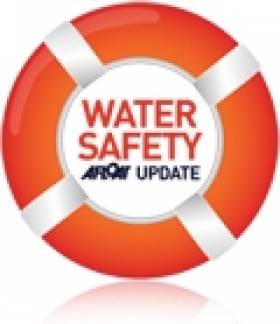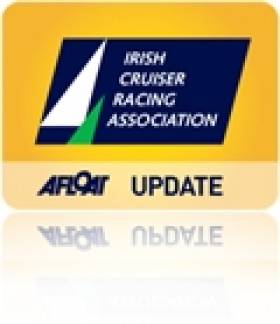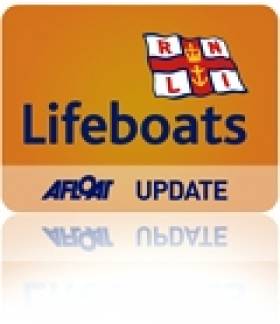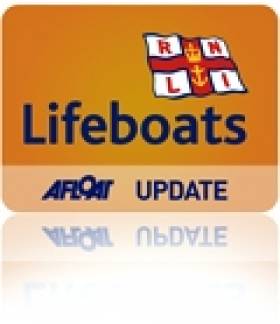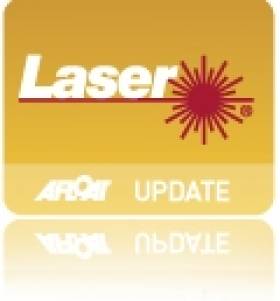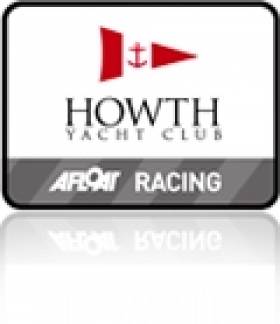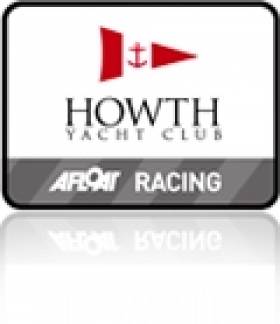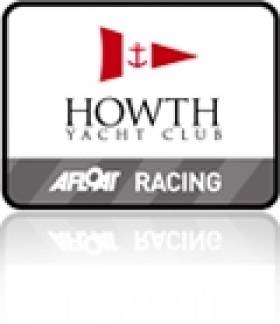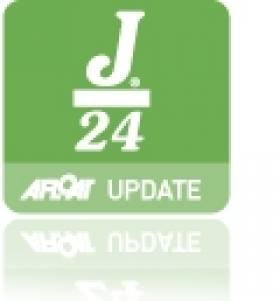Displaying items by tag: Howth
Massive Fee Increases Proposed for Harbour Yacht Berths
#IRISH HARBOURS - Yachts berthing at Ireland's main fishing harbours could see their charges hiked by an incredible 800 per cent.
According to The Irish Times, Marine Minister Simon Coveney has announced a mere 21 days for comment and consultation on the draft Fishery Harbour Centres (Rates and Charges) Order 2012. The consultation document is attached to the bottom of this post and available to download as a pdf.
The proposed new charges include an annual fee of €250 per metre for yachts, which could see a 10-metre yacht currently paying €312 a year for a berth shell out as much as €2,500 annually for the same space.
Additional water and electricity costs could even see this bill rise to €3,100 - for berths that come "without proper marina facilities in most cases".
The proposals apply to the State's six fishery centres at Killybegs, Rossaveal, Dingle, Castletownbere, Dunmore East and Howth, only two of which have pontoons suitable for leisure boats.
The Irish Times has more on the story HERE.
This Friday Last Day for 2012 Fingal Lifeguard Applicants
#WATER SAFETY - This coming Friday 30 March is the closing date for applications for Fingal County Council beach lifeguards for the 2012 summer season.
Lifeguard cover will be provided on Fingal beaches on weekdays and weekends 11am to 7pm from 2 July till the last week of August, depending on weather and staff levels.
Beaches and bathing places scheduled to be guarded this summer include Balbriggan (front beach), Skerries South, Loughskinny, Rush North and South Shores, Portrane (Tower Bay and The Brook), Donabate, Malahide, Portmarnock, Sutton (Burrow Road) and Howth (Claremount).
Applicants must be not less than 17 years of age on 1 May 2012. Application forms are available to download HERE.
Kinsale Corby 25 Will be the Boat to Beat at BMW Event
#ICRA – Class two will live up to its reputation as the most competitive of classes at ICRA's BMW National Cruiser Championships in Howth Yacht Club with current National Champion Brian Goggin's Corby 25 Allure from Kinsale Yacht Club pitched against locals Dux Anthony Gore Grimes and Dave Cullen's King One. Another south coast entry, Slack Alice, Shane Statham's GK 34 from Waterford Harbour Sailing Club is also a performer.
The BMW sponsored event cruiser national championships runs from 25th to 27th May with some of the country's top boats already declaring their interest.
Class 1 will be expected to feature Pat Kelly's J109 Storm last year's Champion and ICRA boat of the year but she will be challenged by Paul O'Higgins in the refitted Rockabill and a strong Dublin bay based J109 fleet.
In class three Howth's Alliance (Vince Gaffney) is already entered giving the local fleet another chance at ICRA silverware.
The challenge in Class 0 will be led by Howth's Crazy Horse Norbert Reilly's attractive and potent Mills 36 who will face up to Royal Cork Yacht Club Kerr 39 Antix which is always campaigned to a high level by Anthony O'Leary.
The Corinthian Cup for non spinnaker boats has magnificent trophies for both IRC and Echo to cater for all boat types. Kieran Jameson's Changeling has already entered this division which is expected to feature a large fleet.
Discounted entry fee of €125 is available up to April 14th to encourage early entry.
Lifeboats Receive 1,000 Calls for Help in 2011
#LIFEBOATS – RNLI Lifeboats in Ireland launched 980 times to a variety of call outs in 2011. 905 people were rescued over the course of the year by volunteer lifeboat crews who spent over 9,826 hours on service at sea.
Howth RNLI lifeboat station in Dublin was the busiest coastal Irish station, launching to 48 requests for help and, bringing 60 people to safety. They were followed by Crosshaven RNLI in Cork who launched 46 times and assisted 43 people. Enniskillen, one of Ireland’s two inland RNLI lifeboat stations which operates bases on both Upper and Lower Lough Erne, launched 52 times and brought 46 people to safety.
The busiest month for rescues was July with 155 launches followed by August with 124 calls for assistance. February 2011 was the busiest February for Irish launches in the RNLI’s history, as were May and October 2011.
Over a third of the RNLI’s call outs for last year were also carried out in darkness. The statistics show that launches to vessels suffering machinery failure still account for the largest number of call outs (187) followed by vessels reported to be in trouble (78), grounded (74) and capsizing (73).
Commenting on the 2011 statistics RNLI Deputy Divisional Inspector Gareth Morrison said: ‘Our lifeboat volunteers continue to show selfless dedication and commitment to saving lives. Some stations are extremely busy while others have less call outs but spend long hours at sea in awful conditions. There were some outstanding rescues last year including that to Rambler 100, in which Baltimore RNLI recovered 16 crew members off the upturned hull of the racing boat during the Fastnet race. Sadly there were also long searches for missing loved ones.
‘The work of the volunteer lifeboat crews could not be made possible without the generosity of the public who in difficult times continue to support Irish lifeboat crews. While these figures give an interesting insight into search and rescue by the RNLI on Irish waters they are by no means the full story. As well as working to save lives at sea the RNLI provides other programmes and services for the public including sea safety advice and clinics, education roadshows and visits to lifeboat stations.’
The 2011 figures are being released in the wake of the RNLI Lifejackets for Lifesavers campaign which will see every lifeboat station in Ireland take delivery of new specially designed lifejackets in September. The lifejackets have been commissioned by the RNLI for search and rescue work and have been given the seal of approval from lifeboat volunteers. The cost of providing the lifejackets for all 43 lifeboat stations in Ireland is estimated at €160,000.
Howth Lifeboat Crew Aid Fishing Vessel
#RESCUE – Lifeboat crew with Howth RNLI spent over ten hours on Saturday (4 February 2012) assisting a 17 metre fishing tralwer, with seven crew onboard, 36 miles north east of Howth, which was rapidly taking on water.
Howth RNLI were requested to launch their all weather lifeboat to the fishing vessel at 1.08 pm on Saturday afternoon and it would be nearly ten and a half hours later when they returned to the harbour with the casualty vessel under tow.
The Irish Coast Helicopter were also on scene to help the stricken vessel and a winchman delivered a salvage pump onboard to help the crew try and staunch the water. With the lifeboat on scene the Coast Guard helcopter returned to base and the lifeboat crew worked quickly to establish a tow in difficult conditions. Weather was force six with a strong southerly wind.
Keeping the casualty vessel under tow in bad conditions proved challenging and the rope parted a couple of times. Sixteen miles north east of Howth the fishing crew reported that the water coming into the vessel was increasing and the tow was stopped. A lifeboat crewmember was transferred onto the fishing trawler and a new salvage pump was put onboard. The source of the leak was identified and action taken to stem the flow of water. The lifeboat once again undertook the tow and eventually arrived into Howth harbour at 10.25pm. All crew onboard the fishing vessel were unhurt.
Commenting on the callout Howth RNLI crewmember Dave Howard said, " This was a long callout for our all weather lifeboat crew. Condtions were not great offshore and going from the lifeboat onto the casualty vessel in a two to three metre swell was very challenging. However when a fishing vessel reports taking on water, it is vital to make sure that the crew are safe and that the tow does not part. We are relieved that all crew got home safe."
Howth Laser Frostbite Inter-Club Laser Masters Challenge
#LASER – All Master Laser sailors are invited to compete in the second running of the Laser Inter-club Masters' Challenge being held by Howth Yacht Club on Saturday 10th March as the finale to the Laser Frostbite Series.
All Masters Laser sailors are invited to enter teams (3 minimum) to compete for the trophy. The event consists of 3 races (two windward-leewards, each approx 40 mins. duration, and the Round the Island Race), with the first race starting at 10:55. The best three Masters sailors from each club will count for the trophy.
The famous Howth Laser Lunch and prize-giving will follow straight after racing. The Ireland V Scotland game will be shown on big screens after the lunch in the club bar.
More details from Howth Yacht Club.
BMW Cruiser Nationals the highlight of Howth's 2012 sailing season
Following its support of the highly successful J/24 Europeans last year, BMW Ireland is continuing its association with Howth Yacht Club by sponsoring the ICRA National Championships in May, making it the outstanding event in the Club's 2012 calendar of 26 national, regional and local regattas.
The BMW Cruiser Nationals, as the event will be known, will be one of the biggest keelboat racing regatta in Ireland this year. It is expected to attract over 100 entries across Classes 0, 1, 2, 3 and White Sail Division for a 7-race series over three days (Friday 25-Sunday 27 May), with over 700 sailors competing.
A number of Irish Sea offshore races are being planned as 'feeder races' from other sailing centres in Ireland and the UK to further enhance the fleet numbers. It will be the third time Howth has hosted the event, having handled the inaugural ICRA Nationals in 2004 and again in 2008.
Commenting on the sponsorship announcement, Championship Chairman Chris Howard said: "We are naturally delighted that a company of the stature of BMW has seen fit to come on board with Howth Yacht Club again to support this highly prestigious championship and we look forward to welcoming some of Ireland's top sailing talent next May."
John Ives, Managing Director of BMW Ireland, commented: "Our experiences in the sailing world have always been positive and our association with the J/24 Europeans was very worthwhile so we are pleased to maintain our relationship with Howth Yacht Club who we know will provide an event of the highest calibre – afloat and ashore – that reflects well on our brand."
In addition to the BMW Cruiser Nationals, HYC’s calendar of events during 2012 will also include:
- Fingal International Family Cruising Festival – July 7th–15th
- The annual Lambay Races – June
- Spring Warmers series - April
- J/24 Eastern Championships – May
- Corby Cup - May
- Puppeteer National Championships – August
- Fireball National Championships – June
- Laser Leinster Championships - June
- Match Racing Nationals – July
- Dinghy Regatta - July
- Topper Leinster Championships – March
- 420/470 Nationals – August
- Feva/RS200 & 400 Nationals – August
- Howth 17s’ Nationals – August
- Shipman Nationals – August
- Etchells Nationals – September
- Autumn League – September-October
The schedule effectively means Howth YC is hosting an event almost every weekend from April to October.
Howth Yacht Club to Stage 26 Sailing Events in 2012
#HOWTH – Howth Yacht Club will stage 26 national, regional and local sailing championships and regattas in 2012 and Commodore Roger Cagney launches them all at the north Dublin clubhouse this Wednesday evening. The 2012 programme kicks off in late May with the ICRA Cruiser Racer National Championships, one of the biggest events on the Irish sailing calendar.
Cull heads Howth Laser Frostbite into second series
#LASER – In one of the most competitive Howth Yacht Club Laser Frostbites in many years, Ronan Cull ended the first series as clear winner, discarding a second place in the 11-race programme. Conditions were very consistent throughout the series, with winds mostly in the 10-14kt range, the exception being a late November weekend which gave the fleet fast sailing in winds of over 20kts.
The minor places were all up for grabs on the final day with Evan Dolan (NYC) starting the day in a comfortable second but David Quinn, Colm Cunningham and Ronan Kenneally (RCYC) all within a couple of points of third. In the end, Dolan scored a second and fourth to consolidate his second place overall. Cunningham had an uncharacteristic seventh place in the first race to effectively put him out of contention for third leaving it up to Quinn and Kenneally to fight it out for the last podium spot in the final race.
With two points between them, Kenneally had to put two boats between himself and Quinn, which was the case on the final run after a capsize by Conor Greagsby. However, Greagsby recovered well to pass Kenneally again before the final mark and with only one place separating them, this allowed David Quinn to take third overall, with Kenneally in fourth and Cunningham in fifth.
In the Radial Fleet, it was a Malahide clean-sweep with Alex Shackleton winning, Sean Anglim second and Ciaran Costello third. The final two races were a fitting close finish to a great series with boats travelling from Dun Laoghaire, Skerries, Wexford, Cork and Malahide to compete.
HYC’s Frostbite organisers are expecting Series 2 to be even more competitive than the first, with more races and possibly some windier conditions than in November and December. Ronan Cull will be hot favourite to win both series, a feat that hasn’t been achieved since the 2001/2002 season when Colm Cunningham won both trophies. 18 races are scheduled and entry is now open (www.hyc.ie) for anyone who didn’t race in Series 1.
The HYC Frostbite series will finish with the traditional ‘Round the Island’ race, this year on Saturday 10th March. The final day will again feature the Inter-Club Masters’ Challenge which was such a success last year. This is a team event with the top three over-35 sailors from any club in the country counting towards the overall trophy. Racing will include two normal course races and the Round the Island Race with no discard.
Last year, the event was won by the host club but hot competition is expected in 2012 from the Ballyholme and Dun Laoghaire Masters’ fleets. As always, the infamous ‘Laser Lunch’ takes place after racing on the final day in the club restaurant along with the overall prize-giving.
J24 World Champs for Howth in 2013
#J24–Howth Yacht Club will stage the J24 World Championships from 22nd to 30th August 2013. This follows the successful staging of the class European championships at the club in September. Irish boats will be required to qualify for the event.



























